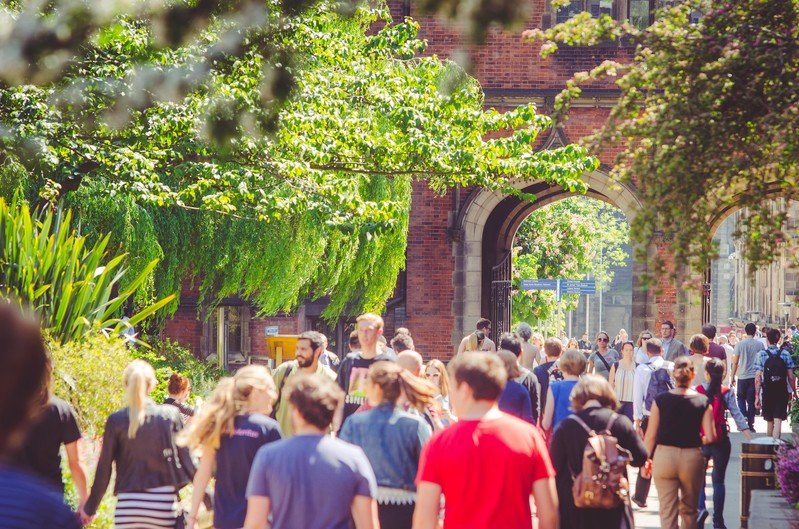Staff Profiles
Dr Felix Schulz
Senior Lecturer in Mod European History
- Telephone: +44 (0) 191 208 6466
- Address: School of History, Classics, and Archaeology
Armstrong Building
Room 1.35
Office Hours, 2024/25 (Semester 2 only)
Mondays 2-3, Tuesday 2-4 and, of course by arrangement.
Introduction
My interest spans the contemporary history of the German-speaking countries, with a particular focus on sepulchral cultures, regional and national memorialisation, as well as the link between landscape and identity.
Qualifications
PhD, University of York (2006)
MA by Research (Dissertation), University of York (2001)
BA (hons.) in History, University of Kent at Canterbury (1996-1999)
Previous Positions
In the past I have taught at Lancaster University, the University of York, and Sunderland University.
Roles and Responsibilities
Admissions Tutor
Research Interests
My first monograph explores East German sepulchral culture (i.e. cemeteries and their design, organisation of disposal, private and public burial ceremonies, propagation of cremation, communal areas for the internment of urns, gravestone design, etc.) in the second half of the twentieth century, with particular emphasis on the effects of modernisation, secularisation, and the policies of a socialist state, whose regulatory approaches oscillated between administrative disinterest and grand schemes that in turn were regularly resisted and contested by individuals and institutions.
However, my interest is not limited to the GDR or Germany as the field of death, dying, and disposal allows for, indeed necessitates a deeply comparative approach.
Current Work
I am continuing my research into death after 1945. I am currently working on Socialist thanatology, tragic deaths and accidents in the GDR, as well as the changes to cemeteries in Germany after 1990. In addition, I have for the last four years pursued a second research strand that focuses on the Alps. This work reflects my interest in the relationship between spaces and identities in Central Europe, and the intricate and fascinating relationship between the German-speaking peoples.
Postgraduate Supervision
I welcome proposals from postgraduates who are interested in any aspect of the political, cultural and social history of Modern Germany, the history of death in Modern Europe and the role of place, space and landscapes in history and identity formation.
Any year I might be teaching form the following
Undergraduate Teaching
His 1102 History Lab 1 or 2
His 2703 Germany and Central Europe 1815 to the present
His 3344 Rise and Fall of the Berlin Wall
His 3000 Reading History
His 3020 Writing History
Postgraduate Teaching
In postgraduate teaching I generally concentrate on the following three fields:
- "Political Violence and street-fighting in interwar Europe"
- "Death, Rape and Suicide in Germany in 1945"
- "Poitical Violence in Germany, 1968-1977".
-
Articles
- Valizade D, Schulz F, Nicoara C. Towards a Paradigm Shift: How Can Machine Learning Extend the Boundaries of Quantitative Management Scholarship?. British Journal of Management 2024, 35(1), 99-114.
- Peniston-Bird C, Rohkrämer T, Schulz F. Glorified, Contested and Mobilised: The Alps in the Deutsch-Österreichischen Alpenverein from the 1860s to 1933. Austrian Studies, special issue, Hughes, J. (ed.) 2011, 18(1), 141-158.
- Penitston-Bird CM, Rohkrämer T, Schulz FR. Glorified, Contested and Mobilized: The Alps in the Deutscher und Österreichischer Alpenverein from the 1860s to 1933. Austrian Studies 2010, 18(1), 141-158.
- Schulz FR, Rohkraemer T. Space, Place and Identities. History Compass 2009, 7(5), 1338-1349.
-
Authored Book
- Schulz FR. Death in East Germany, 1945-1990. Oxford and New York: Berghahn Books, 2013.
-
Book Chapters
- Schulz FR. Cemeteries: Tracing Sepulchral Culture. In: Peniston-Bird, CM Barber, S, ed. Approaching Historical Sources in their Contexts: Space, Time and Performance. London: Routledge, 2020, pp.48-64.
- Schulz FR. In Search of Rationality and Objectivity: Origins and Development of East German Thanatology. In: Betts P; Smith SA, ed. Science, Religion and Communism in Cold War Europe. London: Palgrave Macmillan, 2016, pp.205-224.
- Schulz FR. The Disappearing Gravestone: Changes in the Modern German Sepulchral Landscape. In: Aaron, M, ed. Envisaging Death: Visual Culture and Dying. Newcastle upon Tyne: Cambridge Scholars Publishing, 2013, pp.10-25.
- Schulz FR. Disposing of the Dead in East Germany, 1945-1990. In: Betts, P; Confino, A; Schumann, D, ed. Between Mass Death and Individual Loss: The Place of the Dead in Twentieth-Century Germany. New York; Oxford: Berghahn, 2008, pp.113-128.
